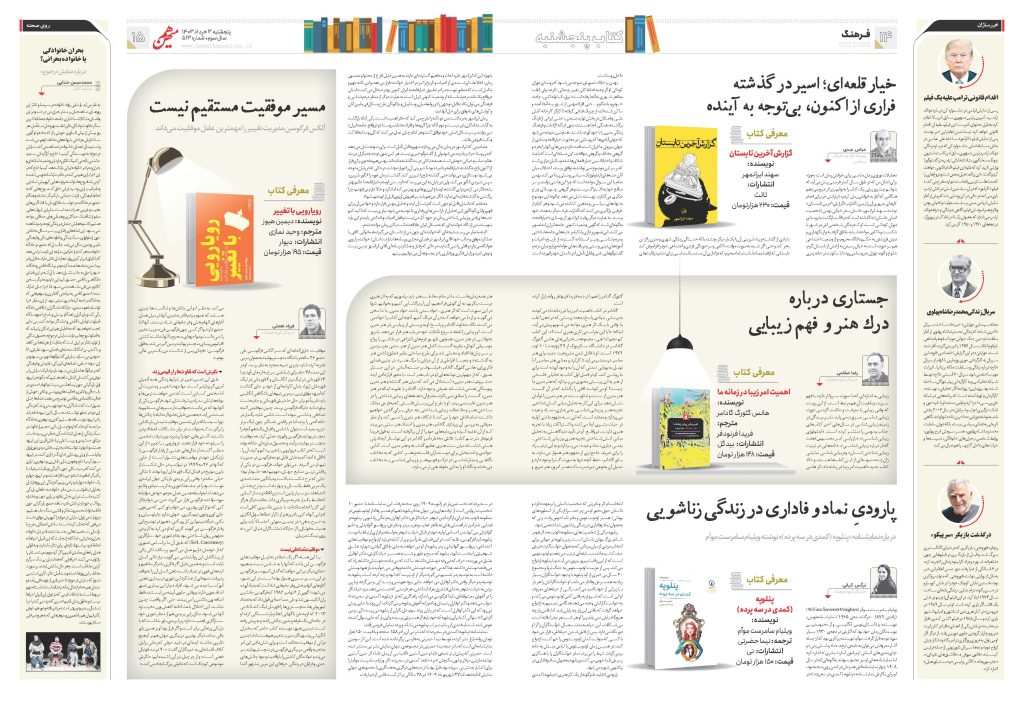This article printed in Hammihan Daily, No 513, Thu, 23 May 2024 in Persian.
https://hammihanonline.ir/fa/tiny/news-16484
The path to success is not straight
Alex Ferguson considers change management to be the most important success factor
Author: Farzad Nemati, Correspondent of culture group
The extraordinary success that Sir Alex Ferguson experienced during his 26-year presence at Manchester United as a coach may seem like something of a miracle. During this time, he brought 38 trophies to the Red Devils and with 13 championships in the English Premier League and 2 championships in the European Champions League, he left such a record that today in order to reach Ferguson’s position, the most successful head coach of English club teams should wins almost twice as many championships as he currently has.
Of course, such success was not accidental. Luck may knock on a person’s door once, but in a breathtaking competition like the Premier League, it is unlikely to be able to do one-tenth of what Ferguson’s Manchester United did. No, Manchester United’s success has been the result and product of a fierce fight that you can read it in “Facing with the Change” book, at least as far as Ferguson’s significant role in managing the team goes.
Ferguson was ahead for two and a half decades in one of the most competitive industries in the world; Where the failure rate is high and the average tenure of a coach is only 1 year and 4 months, and the forgiveness rate is very low as 55% of those who have coached only once never do it again. With such interpretations, it is enough to make a short slip or to be negligent in avoiding repeating mistakes; In that case, you’ll probably have to watch football forever from the stands, not from the coaches’ bench.
Attitude Makes the Difference
According to this interpretation, change is inevitable in everyone’s life circumstances. Facing change and managing it is reserved for those who do not want their fears and excuses to stand in the way of their progress. Ferguson was one of those who knew that “success does not come in straight lines.”
For this reason, he was not only not afraid to face challenges, but also to ensure the success of his team by selecting players who could be flexible in the face of difficulties, accept their shortcomings and put personal development at the forefront.
“Facing Change” from this perspective is full of concrete examples of Ferguson’s behavior with his players in difficult situations; from where they were losing to Bayern Munich in the Champions League final at the Camp Nou on May 26, 1999, to a much simpler example; When young Irish player Robbie Brady gives his turn in the food court to Cristiano Ronaldo, but for this act, he is politely reprimanded by Ferguson: “I want you to think you’re better than him, I want you to believe you can take his place in the team, I don’t like you flattering him, I don’t want to see you do it again.”
Hughes explains Ferguson’s behavior by using a psychological concept called the Self-Consistency Theory, which states that we act based on our own perceptions of ourselves.
Prescott Lackey, one of the pioneers of this psychology, says that a human being has a natural need for consistency, and therefore, if a thought conflicts with other strong concepts and ideas, the human mind will not accept it. An example of how this theory works is seen in the mental illness anorexia.
People with this disease have the illusion of being overweight and when they stand in front of the mirror, they only see themselves as overweight, even if they are not. This disorder causes them to continue to lose weight destructively.
The example of Robbie Brady is also important from the perspective of the self-consistency theory because Brady did not believe that he was equal to the Portuguese player, and if he were to remain in this belief, even the best coach in the world would have no effect on him; An idea that confirms what the legendary Brian Clough once told reporters: “Football is 90 percent mental,” and we’ve also heard it from Churchill: “Attitude is a small thing that makes a big difference.”
Book introduction
Facing with the Change
Author: Damian Hughes
Translator: Vahid Namazi
Price: 195,000 tomans


